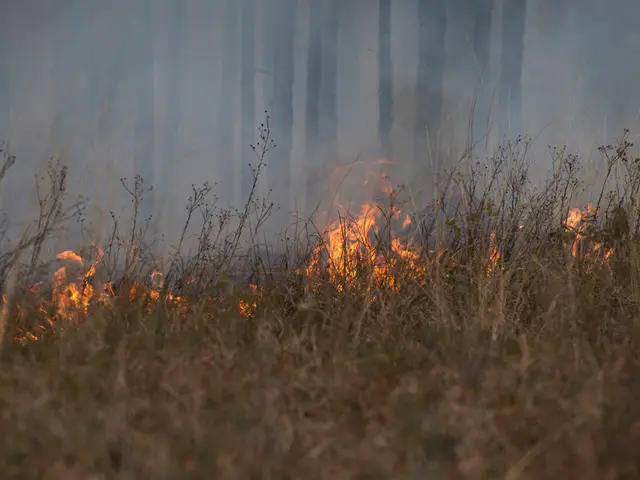Unable to tackle the challenges on its own, Europe faces difficulties
The upcoming summit between U.S. President Donald Trump and Russian President Vladimir Putin presents a challenging scenario for the Ukrainian government, with the potential for a shift in military aid that has been a cornerstone of Ukraine's defense strategy.
While the U.S. remains a crucial ally for Europe due to its nuclear weapons, the question of continued support for Ukraine hangs in the balance. If the U.S. were to withdraw military aid following the Trump-Putin meeting, alternative strategies are being considered to maintain Ukraine's defense capabilities.
One such alternative is a strengthened multinational coalition led by European countries and partners like the UK, France, Japan, and Australia. This coalition, often referred to as the "Coalition of the Willing," is already drafting long-term security guarantees and preparing military support frameworks. The coalition has committed substantial funding—around €40 billion in 2025—and operational plans for joint defense initiatives like a “Multinational Force Ukraine” to help secure Ukraine’s borders and support its armed forces post-conflict.
Another approach involves continued U.S. legislative and financial measures to indirectly support Ukraine's defense. For instance, the Supporting Ukraine Act of 2025, under consideration in the U.S. Congress, aims to bolster domestic production of military equipment for Ukraine and use seized Russian assets for support, ensuring continued backing even if formal direct military aid declines.
In addition, Ukraine itself is increasingly focusing on building its own strong military capacity. Given the improbability of NATO membership or automatic foreign intervention, this self-reliance is seen as the most realistic and crucial factor in security guarantees.
Coordinated international sanctions against Russia by Western countries also form part of the potential substitute security architecture. These sanctions, aimed at pressuring Russia, are an important aspect of the multipronged approach to maintaining Ukraine’s defense capabilities.
If the U.S. were to withdraw support, Ukraine would need to adapt to this new reality. The entire defense of Ukraine against Russian invasion relies on support from the U.S. and Europe. However, the statements from Europe indicate a desire for some say, but not a complete departure from the United States. Europe is heading in the direction of demanding some say, but also not wanting to distance themselves too much from the United States.
A potential solution proposed by U.S. Vice President JD Vance is for Europe to purchase military goods in the U.S. and pass them on to Ukraine. While this could help bridge the gap left by a potential withdrawal of U.S. aid, it could financially burden Europe, especially considering the substantial costs involved in such a venture.
In summary, the alternatives involve a broad European-led coalition providing military aid and operational support, continued U.S. legislative and financial measures to indirectly support Ukraine's defense, Ukraine strengthening its own military forces, and coordinated international sanctions to pressure Russia. These alternatives reflect ongoing efforts to maintain Ukraine’s defense capabilities through multilateral and innovative means even if direct U.S. military aid ceases after any political summit outcomes.
- In light of the potential shift in military aid from the U.S. following the Trump-Putin meeting, discussions are underway regarding a strengthened multinational coalition, led by European countries, to provide long-term security guarantees and military support for Ukraine.
- Given the improbability of direct foreign intervention or NATO membership for Ukraine, the focus on building its own strong military capacity becomes an essential factor in maintaining its defense capabilities, as self-reliance is seen as the most realistic and crucial factor in security guarantees.






